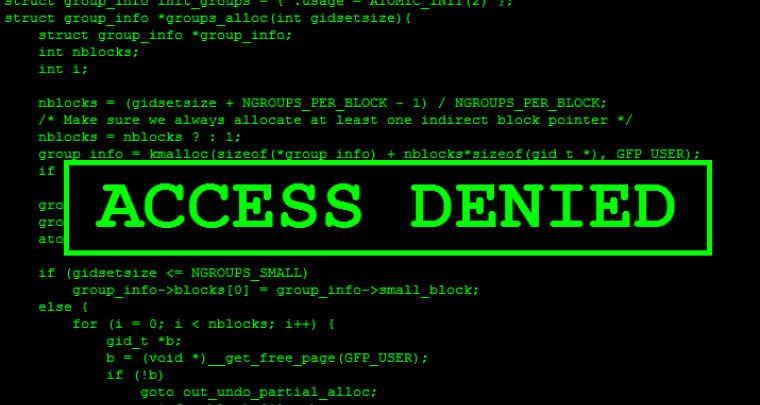At the beginning of the Esso Exploration & Production Guyana Limited (EEPGL) Stakeholder meeting 10 am on Friday Feb 12, 2021, CEO Alistair Routledge said they wanted to be transparent and accountable. And they took the trouble to invite Transparency Institute Guyana Inc. (TIGI), of which I was an executive member. Later in the meeting when questions were asked, Mr. Routledge said EEPGL is providing the Government with all the information — no doubt because the Government is the elected representative of the people, and the meeting was of barely one hour duration. So on March 26, last year, after waiting in vain for EEPGL to send the requested recording of that exactly 1 hour Zoom meeting, TIGI directed questions in writing to the Minister of Natural Resources (MNR), Vickram Bharrat MP, copied to the Environmental Protection Agency. The email address on their website was courteously and rapidly corrected by the MNR staff and I submitted the questions. One year later, there is still no answer. Let me explain something at this point. We were asking for continuous data on production, storage, and offloading (PSO) of oil and water, and on reinjecting of water and gas, which are the business of the floating production, storage, and offloading platform (FPSO), which are being paid for by Guyana to be used for PSO of the oil and gas we are told belong to us after expenses. Surely the owners are entitled to know what is going on in their business. Our business managers, viz., our governments, are supposed to manage the business operators, Exxon, to give account of the business to us.
We asked for chemical analyses to know the nature of the oil, water, and gas coming from the wells, and for when what are stored, offloaded, reinjected, flared and vented. We asked for production quantities not only for the same reason the farmer must know how much of which crops he reaps and the shopkeeper how much of which items he sells, but also because oil, gas and associated substances can endanger the environment for Guyana and the Caribbean; and as responsible business owners we must assess the danger and be prepared for it. TIGI asked for the quantities on a daily basis to prevent the possibility of their subsequent alteration. All production must be known. This is a commercial venture. The people paying for it must know what they are paying for and be able to inspect production at any time. Process flow and rates must therefore be known. If there is a spill we will also be able to estimate it from the rate at the source. When gas is flared or vented, as responsible stewards of the Earth, we have to know how much of what is damaging the environment. Pressure is a primary operating parameter, from well to surface to storage and offloading, and the immediate source of danger. If pressures cannot be controlled then big bad things happen. Compressors fail and may lead to venting if not shutdown. We must know pressures. Temperatures are primary indicators of the health of the machines and is an important operating parameter. The temperatures of coolants discharged into the ocean should also be known for its effect on the ocean vicinity.
In the 1990s I asked Omai Gold Mines Limited (OGML) at the public enquiry after the first cyanide spill for flowmeter readings, but they studiously ignored this, and we had a major spill the magnitude for which we could get no information independent of OGML. We are now in the 2020s and the same ignorance is being repeated with oil and gas. Particularly troubling is that reminders were sent to the MNR and published in the press, but the so-called national newspaper never saw fit to publish anything on it. The EPA seemed to be trying its best, and we would all like it to succeed. I was accorded a tour of operations late last year, and saw where the stations are to be set up to receive the monitoring while awaiting the laying of fibre-optic cable that would transmit the data. I tried to convey the message that it does not require that much technology to get the data I requested. Last week, on the anniversary of the request for the data, I asked the former EPA director, Dr. Vincent Adams, if he ever got such data from Exxon. His answer was a resounding, “Yes!” He said he asked for more than I asked for and he got a daily report delivered to his desk at the EPA. And this gentleman, who knew what to ask for, and got it, was replaced! I no longer get replies from the EPA, so I am hereby notifying them that Dr. Adams did not take away the daily reports and they must be somewhere in the EPA — to be used as an example of what can be achieved if only they know what to ask for and why. But Dr. Adams was pleased to see they are attempting to use the cradle-to-grave structure of environmental management that he introduced at the EPA. He only hopes they do it properly.
I was pleased to read in February this year that the EPA can monitor, but what they monitored was not shared with me, despite my asking. I was most pleased to read that the EPA acquired a chemical engineer. They need at least 3 of them off-shore and 3 on-shore for each FPSO, and the oil profits should pay for them, but I fear that the underfunding and understaffing that usually attends important public business in Guyana will prevail, because the political bosses, from Burnham to now, don’t understand technology. I was also pleased to see that their GIS specialist was going after the big picture. Their successes or failures have not been shared with me. There are some who will ask why it is my business to know the travails of the EPA and other similar public bodies. The answer is that I have deliberately devoted my life to education in Guyana, more specifically, technical education. There were times when I had no answer to convince graduates to remain or return to Guyana. I had thought that the politicization of technical jobs ended in 1992, but it restarted shortly thereafter, and by the 2000s even free advice was routinely ignored. There were exceptions, but in general technical people had to take orders from bad taskmasters, so the exodus continues, because the ambitious young scientist or engineer did not want a CV populated with incomplete or bad projects.
A symptom of this malaise is the lack of formal state professional sciences and engineering oversight bodies. The current voluntary Guyana Association of Professional Engineers (GAPE) and the Guyana Chap-ter of the Caribbean Academy of Sciences (CAS) should be supported and upgraded by legislation to become autonomous organisations with substantial state funding independent of political favour. Unfortunately, the current electoral system has fostered such intense polarisation that one side of the political divide always fears takeover of any influential organisation by the other side, and there is thus no political will for the enabling legislations. Such professional bodies should have influence like the Medical Council and Bar Association but should also be the go-to organizations to recommend technical persons to State Boards and advisory bodies, some things again that are politically contentious under our current system. Let us be very clear on the necessity for monitoring. ExxonMobil, the former EPA director, and all competent engineers know with absolute certainty that unless there is monitoring there can be no control. Therefore, a Ministry of Natural Resources that cannot monitor the processes it is ultimately responsible for is guilty of the gravest dereliction of duty. We can walk all we want on Sunday mornings for occupational safety and health (OSH), but it means nothing when the leaders recklessly accelerate the Guyana oil and gas extraction bus over the speed limit of environmental safety and health (ESH), while disregarding other signs, all in the name of hustling to make more money, not at the behest of the ordinary citizen passengers, but at that of greedy exploiters. Surely we are better than that.
Sincerely,
Alfred Bhulai










